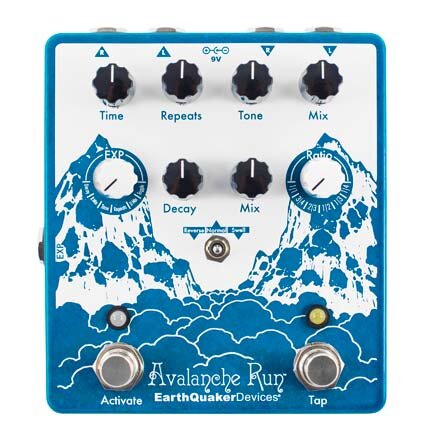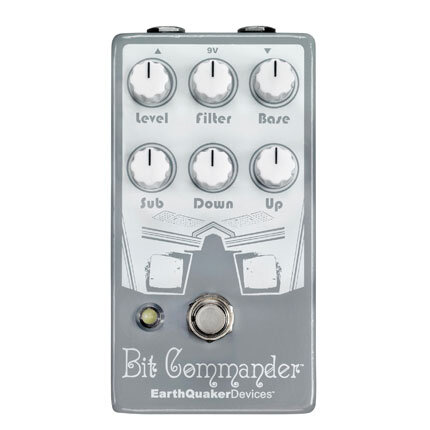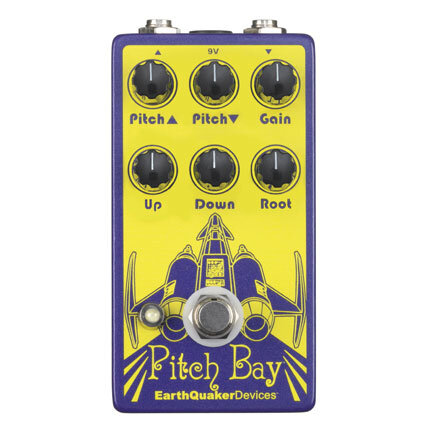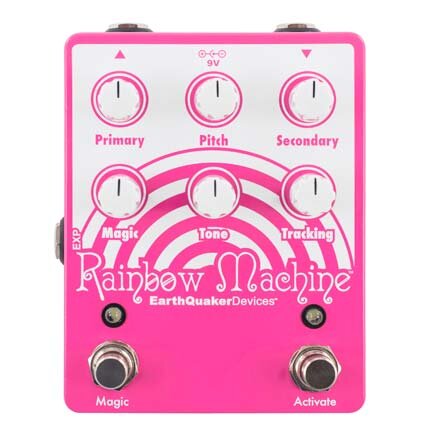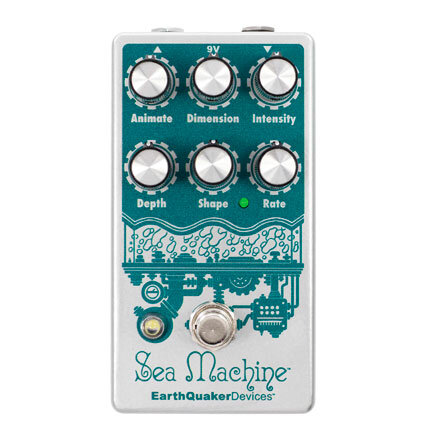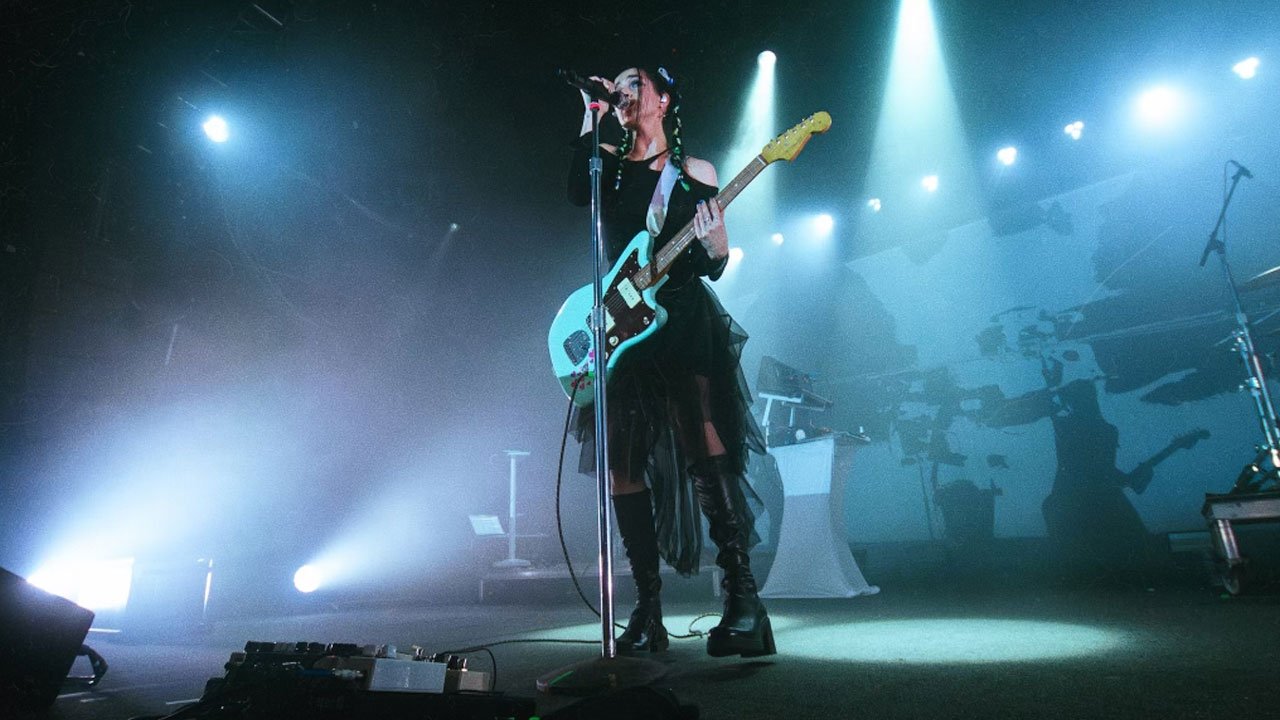Landon Jordan: Guitarist For Hire
E.E. Bradman
Most guitar players with enough tone, taste, and time to gig with T-Pain, Snoop Dogg, Erykah Badu, Devin the Dude, Eric Benet, Ashanti Floyd, Chris Brown, Tank, Tye Tribbett, Tweet, and New Edition probably end up moving to New York, L.A., or Nashville. But for Landon Jordan, a home studio near Atlanta packed with his favorite gear is all he’ll ever need.
“I’m Southern. I’m about as Southern as it gets, man. I really like the mountains, I like the green, and I like getting all four seasons. I just like the people, too. I love it here.”
I’m in Northern California, Landon Jordan is sitting in his suspiciously immaculate studio 20 minutes north of Atlanta, and we’re chatting via Zoom. I’d come across Jordan’s playing on YouTube and fallen for his funky grooves on Strat- and Tele-style Iconic, Landon, and X Factor six-strings, liberally sprinkled with EarthQuaker Rainbow Machine magic, and then I’d learned of his reputation for having a vintage-leaning but timeless sound that combines disciplined technique, warm tone, and low-down feel. I couldn’t help wondering why someone so comfortable with every aspect of live and studio pop guitar didn’t leave the South for greener pastures, but it’s clear that besides being newly married and off the road during the pandemic, Jordan hadn’t found a city he liked more than Atlanta.
“Touring’s hard, man. It’s hard on your mind and it’s hard on your body, even when it’s an ideal situation financially and travel-wise,” he says. “I don’t think L.A. was ever really in the picture. If I was a jazzer or a pit gig guy or if I was a killer sight-reader, I might’ve thought about New York,” he says. “In the beginning, I wanted to go to Nashville, but even though I love country and it’s in a lot of my playing, the city is just not as diverse musically as I would like it to be.”
A Natural Progression
Jordan’s easy mix of country, blues, funk, pop, soul, and rock flavors is the first thing most people notice about his sound, so I wasn’t surprised to hear that the records he heard growing up were all over the map.
“Nobody in my family played an instrument, but my mom and dad loved music. It’s almost as if they were players,” he says. “My dad had all the rock, the hair bands, and other stuff, too, like UFO. My mom was way more into Motown. My brother had—still has—amazing taste in music, so I grew up listening to bands like Killswitch Engage, Zao, and Demon Hunter.”
Jordan’s guitar adventures are tied to the end of his skating career, but he’s philosophical about it. “I used to skate professionally, but that all came to a screeching halt with a knee injury when I was 21. I didn’t know what I was going to do, so I started picking up the guitar.” Before long, he was revisiting Delta blues riffs he’d heard his uncle listening to; from there, he got into Texas blues and Stevie Ray Vaughan. “Obviously, Stevie’s got the blues thing going on, but towards the end of his life, he was getting jazzy. The way he attacked the guitar—getting the meat of his fingers underneath the strings, really popping them—lends itself to country. It’s almost chicken pickin’. I got obsessed with that sound.”
Naturally, blues led to country, followed by Western swing, which then segued organically to jazz, specifically hard bop icons like Wes Montgomery and George Benson. In Landon’s hands, those influences—plus the Motown, rock, and heavy music he grew up with—congeal into something different but flexible. “There was a natural progression of morphing of stuff, you know?”
The Humbler and the Prince
I mention that something about the way Jordan smoothly crosses genres reminds me of Danny Gatton, known as “The Humbler” for his extraordinarily fluid, jaw-dropping chops and all-around feel. “Oh, yeah!” Jordan enthuses. “I’ll never forget the first time I heard Redneck Jazz Explosion and saw the Telemaster video on Hot Licks. To this day, nobody’s really ever replicated that. There’s been some amazing players, but Danny just had a certain ‘not-give-a-damn’-ism.’”
Another guitarist who deeply impacted Jordan’s DNA is Prince, whose “Head” and “I Wanna Be Your Lover” are the basis of some of Jordan’s most popular improvs on YouTube. “It goes back to my mom—she loves Prince. He’s definitely one of my top three favorite guitar players, and I maintain that he was the funkiest guitar player of all time.” It’s obvious that he’s put in serious time studying the classics. “I think of Michael Jackson’s Off the Wall and Thriller as the best examples of pop rhythm guitar. Paul Jackson Jr. and Steve Lukather, David Williams, and David T. Walker— all that stuff is relevant to what you’re expected to do as a guitarist today.”
Jordan’s musings on the Time/D’Angelo icon Jesse Johnson (“an absolute freak of nature”) and the synergy of Ron Wood and Keith Richards in the Rolling Stones (“a big, chaotic swoop of harmonic beautifulness”) prompt me to ask whether he ever spent time in music school. “I wanted to go to a place like Berklee, but in hindsight, I’m thankful that I didn’t,” he says. “I would’ve missed out on learning by playing around town, which was my music school.” Besides absorbing hard-won lessons that have led him to downplay pyrotechnics in favor of “making a G chord sound better than the next guy,” Jordan also spent thousands of hours dissecting his heroes’ guitar parts. These days, he says, people come to him for what he does, and there’s something satisfying about that. “After years of obsessing over other guitar players, I’ve molded them together to get my sound.”
Insane, But Not Too Insane
You might assume that a dude who prioritizes tastefulness might play it safe with his gear, and you’d be right. Jordan is seriously particular about his fret placement and intonation—no off-the-shelf Fenders for him, thank you very much—and he chose his old-school amps and Elixir strings (mostly .010-.052, usually played with BlueChip picks) carefully. His current setup is a ‘90s-era Soldano X88R preamp and a Synergy SYN-5050 tube power amp. “Clean is so important to me. The Soldano is a three-channel preamp, and it’s got an amazing clean tone, a chunky channel, and more gain on tap than most people need.”
When it comes to effects, however, Jordan uses EarthQuaker pedals to walk on the wild side. “I tend to look for the insane things, but I wasn’t trying to go like, Data Corrupter insane,” he laughs. “I got the Rainbow Machine because of the weirdness that it could do, but I kinda was just messing with it, and lo and behold, I found out that it could be a pretty great mono chorus.” That’s high praise from a chorus aficionado who treasures his vintage Roland SDD-320 Dimension D and two Yamaha SPX90 multi-effects processors while still scouring the internet for a Dytronics Tri-Stereo Chorus from the early ’80s.
Another pedal that rocks Jordan’s world is the Sea Machine, which he uses for washes of distorted reverb. The wobbly unpredictability of the Pitch Bay and the outright freakiness of the Bit Commander inspire him, as well. “I back off the volume going into the Bit Commander or run it into even more distortion,” he says. “I love running stuff out of my computer into these pedals with my little re-amp box. And putting drums through the Bit Commander is pretty insane.” I ask about the Avalanche Run (“it’s just beautiful”), which leads him to wax poetic on the power and potential of expression pedals. “That’s one of the things about the EarthQuaker stuff,” he says. “Everything they put out makes you want to throw out the rulebook.” Next on his list? The Astral Destiny, a multi-mode digital reverb with modulation and octave effects.
For all his fascination with far-out sounds, though, Jordan is still right at home with just a guitar and an amp. That simplicity—just like his down-to-earth love for Atlanta over other, flashier locales—is important to him. “I came from plugging straight into an amp, so that’s something that I keep near and dear,” he says. “There’s a time and a place for all of it; I let the gigs dictate what I have on my board. Knowing when to do it and when not to do it is the key.”
E.E. Bradman is a word nerd and music journalist, Grammy-nominated bass fanatic, stage/studio/touring musician, and musical midwife for childbirth and the dying. Currently based in the Bay Area, he designs sonic environments for theater, film, animation, audiobooks, and radio plays. Stop by and say hi at eltonsounds.com!


